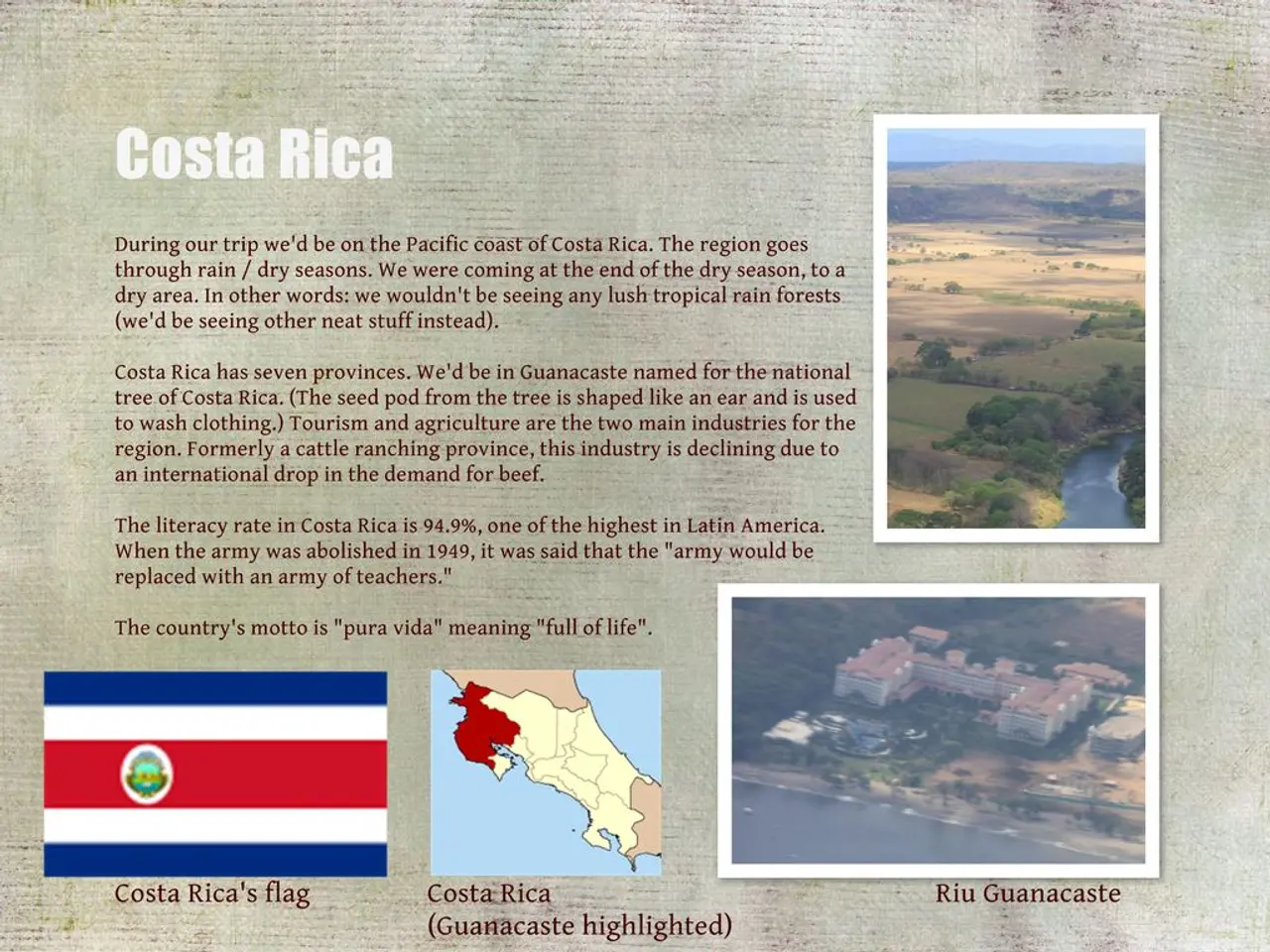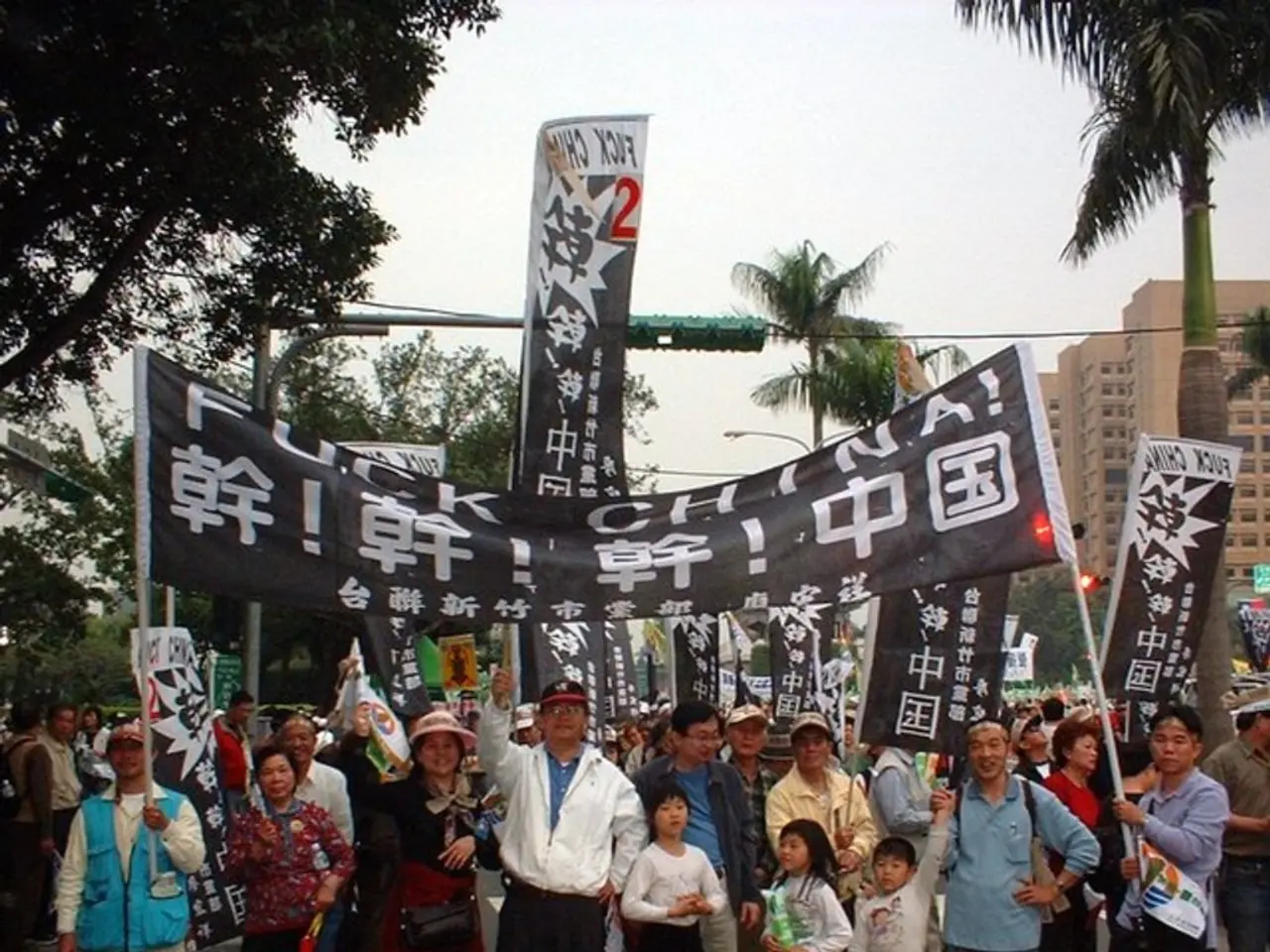El salvadorian president, Bukele, fortifies his authoritarian rule
In the heart of Central America, El Salvador has seen a dramatic shift in its political landscape over the past few years. The most notable change is the significant drop in the murder rate, falling from 36 to 2.4 per 100,000 inhabitants between 2019 and 2024, a testament to President Nayib Bukele's crackdown on gangs.
This shift has been accompanied by a consolidation of power in Bukele's hands. His party, Nuevas Ideas, currently holds 54 out of 60 seats in the parliament, making it the dominant force in the legislative body. This dominance has led to a period where the parliament has been rubber-stamping all legislative proposals.
The parliament has not only approved Bukele's legislative agenda but has also taken steps to remove obstacles to his power. For instance, the constitutional court judges who opposed Bukele were removed, paving the way for his unconstitutional re-election in 2024. The Supreme Court and the Attorney General, who were investigating alleged corruption in the government, were replaced.
These actions have sparked sharp condemnation from human rights organizations and opposition figures who view them as a deliberate move to concentrate power and undermine democracy. Critics argue that these amendments violate the existing constitution and are part of Bukele’s broader strategy to consolidate power by weakening opposition and democratic institutions.
The constitutional amendment in El Salvador has removed presidential term limits, allowing President Bukele to seek indefinite re-election. This move significantly increases the potential for a long-term dictatorship under his rule. The National Assembly, controlled by Bukele's Nuevas Ideas party, passed reforms that abolish term limits, extend the presidential term from five to six years, eliminate the requirement for a second voting round, and move the next election earlier, effectively enabling Bukele to remain in power uninterrupted beyond his current term ending in 2027.
Bukele's popularity, stemming from his success in reducing violence, combined with these legal reforms and suppression of dissent, has created a political environment with little effective opposition. This raises concerns that his presidency could extend well beyond a normal democratic term cycle and edge toward a dictatorship.
As the world watches, El Salvador's political landscape continues to evolve, with the future of its democracy hanging in the balance.
Sources:
[1] BBC News. (2021, August 31). El Salvador: President Nayib Bukele wins vote to end term limits. https://www.bbc.com/news/world-latin-america-58492153
[2] Reuters. (2021, August 30). El Salvador's Bukele wins referendum to end term limits and change constitution. https://www.reuters.com/world/americas/el-salvadors-bukele-wins-referendum-end-term-limits-change-constitution-2021-08-30/
[3] The Guardian. (2021, August 30). El Salvador votes to remove term limits for president Nayib Bukele in referendum. https://www.theguardian.com/world/2021/aug/30/el-salvador-votes-to-remove-term-limits-for-president-nayib-bukele-in-referendum
[4] The Washington Post. (2021, August 31). El Salvador’s Bukele wins referendum to end term limits, giving him path to remain in power. https://www.washingtonpost.com/world/the_americas/el-salvador-bukele-referendum-term-limits/2021/08/31/0f889a98-fe0b-11eb-b0c7-a8922617280d_story.html
- The constitutional amendment in El Salvador, led by President Nayib Bukele, removed presidential term limits, shifting the political landscape towards unlimited re-election — a move criticized as a deliberate consolidation of power and a potential threat to democracy.
- The current domestic political news in El Salvador is marred by controversies and fears of a future dictatorship, as the removal of term limits and the suppression of opposition underscores Bukele's aim to concentrate power beyond democratic norms.
- Despite the drop in crime during his presidency, President Nayib Bukele's unusual policies and legislative changes, like removing term limits and manipulating institutions, have sparked concerns within the international community, with global news outlets questioning El Salvador's commitment to democracy and the rule of law.







